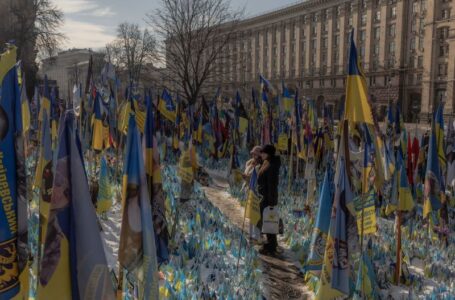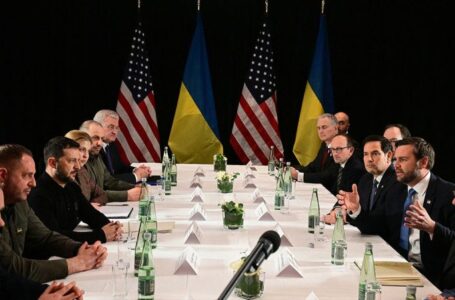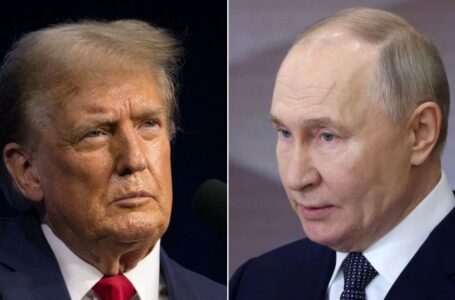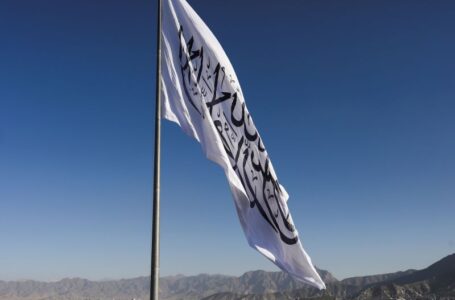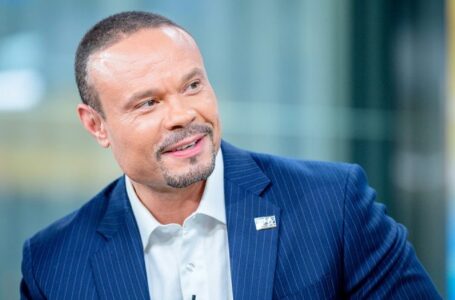Zelensky hails Ukraine’s ‘absolute heroism’ on third anniversary of Russia’s invasion
What Trump was doing on the other Jan. 6.
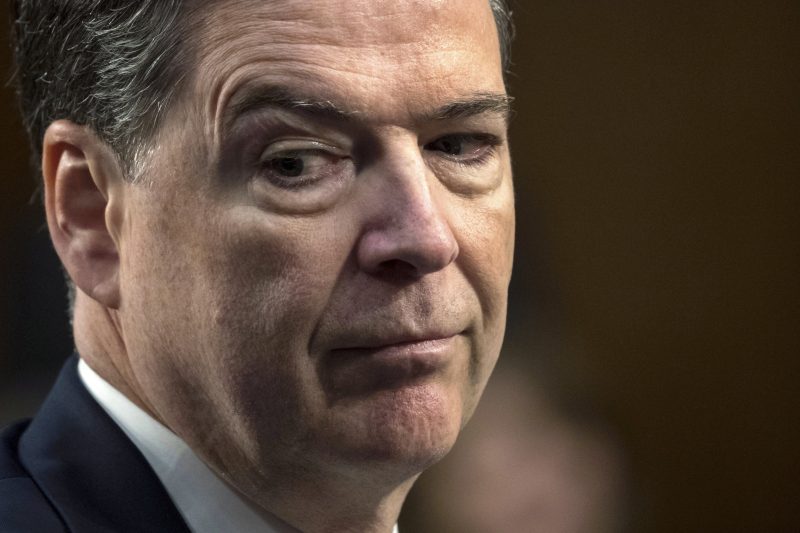

Four years to the day before rioters loyal to Donald Trump stormed into the Capitol to keep Congress from finalizing his loss in the 2020 presidential election, Congress met in the Capitol to finalize his 2016 victory. But President-elect Trump wasn’t in D.C. on Jan. 6, 2017. He was in New York, at his home in Trump Tower, preparing to take office by holding face-to-face meetings with people — two of which would continue to resonate years later.
On Thursday, Trump was about 70 blocks south of Trump Tower, sitting in a Manhattan courtroom as former National Enquirer publisher David Pecker described his efforts to get Trump elected in the first place. According to his testimony, Pecker met with Trump and his attorney Michael Cohen in August 2015 and promised to aid Trump’s presidential candidacy. This commitment eventually led to Pecker’s company buying multiple stories of alleged indiscretions by Trump so that they wouldn’t be made public before the election.
Pecker testified Thursday that he visited Trump Tower after the election. At one point, he met with Cohen, with whom he worked on the hush money payments, including one Cohen made out of his own pocket to adult-film actress Stormy Daniels. Cohen asked for Pecker’s help in getting Trump to pay him back; that repayment is at the heart of the criminal case in Manhattan.
When Pecker visited again on Jan. 6, 2017, he testified, Trump was already in a meeting — with FBI Director James B. Comey and several advisers to his presidential transition.
Comey was there, in part, because the national intelligence arm of the Obama administration was about to release a public version of a report detailing Russian efforts to intervene in the presidential election. Trump had been railing against the idea that Russia had boosted his candidacy since news reports about the interference effort first broke soon after his victory, making the meeting with Comey — during which he planned to brief Trump on the findings — fraught.
Pecker told the Manhattan jury that Trump introduced him to Comey and the others, making a joke about how much intelligence Pecker had at his disposal. Once the others left, Pecker said, Trump asked about Karen McDougal, a Playboy model whose story about an alleged affair with Trump had been purchased and buried by the National Enquirer. Pecker testified that Trump thanked him for his help during the campaign.
By itself, this is simply an interesting coincidence, that Pecker should have gone to Trump Tower and discussed the effort to bury stories about alleged affairs with the president-elect. But it becomes more interesting when considering the other subject that Comey broached while he had an audience with Trump.
The FBI had been made aware several months earlier of a dossier of reports alleging that Trump’s campaign was working with the Russian interference effort. Among the allegations in the dossier was one that came to be known as the “salacious” rumor: that Trump had hired sex workers when visiting Moscow several years before and that they’d engaged in unusual activity in his presence. This allegation has never been substantiated and is not believed to be true, but Comey was aware that several media outlets had the information. BuzzFeed published the dossier a few days later.
After Trump fired Comey in what he reportedly described to a Russian diplomat as an effort to lift the pressure of the ongoing Russia investigation, memos written by Comey memorializing his meetings with Trump were released to the public. In one, Comey described the Jan. 6, 2017, meeting at Trump Tower.
Comey wrote that he asked to meet with Trump in private, at which point he described the contents of the dossier, including the “salacious” rumor.
“He interjected, ‘there were no prostitutes; there were never prostitutes,’ ” Comey wrote in the memo dated Jan. 7, 2017. “He then said something about him being the kind of guy who didn’t need to ‘go there’ and laughed (which I understood to be communicating that he didn’t need to pay for sex).”
The two discussed why no media outlet had reported the allegations, with Comey explaining that CNN (which he said had a copy) would “get killed for reporting straight up from the source report.”
“He then started talking about all the women who had falsely accused him of grabbing or touching them (with particular mention of a ‘stripper’ who said he grabbed her),” Comey wrote in the memo, “and gave me the sense that he was defending himself to me.”
In the wake of the release of the “Access Hollywood” tape, in which Trump was recorded talking about kissing or groping women, several women came forward publicly to allege that Trump had done exactly that to them. None, though, were “strippers.” One former stripper who did allege that she’d had an encounter with Trump, albeit a consensual one, was Stormy Daniels — the one whose story Cohen had paid $130,000 to cover up.
Remember that Pecker was either there or perhaps scheduled to arrive. Pecker who, unlike CNN, had no qualms about publishing unverified allegations, as he has testified. Pecker might have run the dossier contents on the magazine’s cover if they weren’t about Trump.
Comey’s memo ends with his documenting that Trump said he looked forward to their working together. That was short-lived; Comey was fired four months later. The veil of secrecy over the payments made by Pecker and Cohen did last much longer. They were revealed in detail in 2018.
At Trump Tower on Jan. 6, 2017, though, those threads of scandal intersected, if only briefly.

